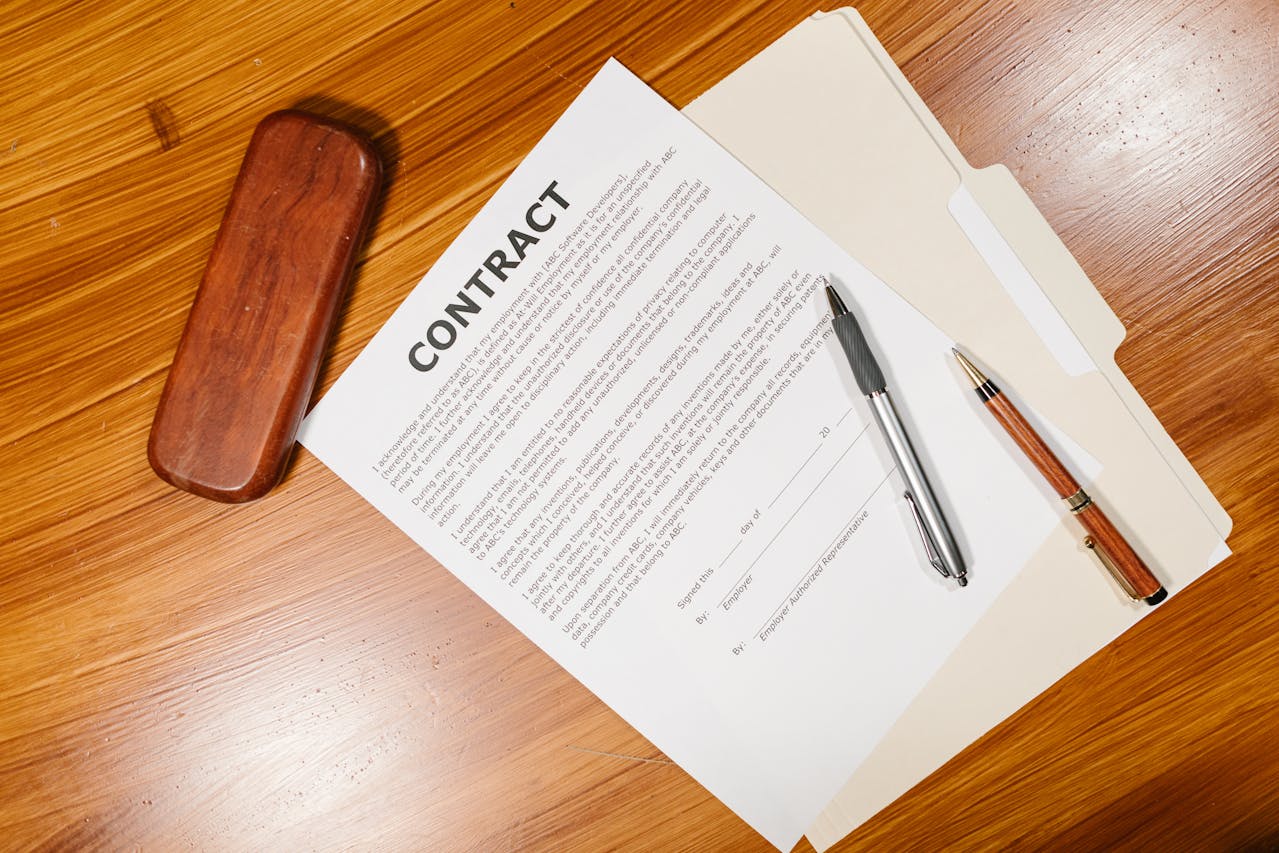
Introduction
Rental or lease agreements are made to avoid disputes between the tenant and the landlord and build a beneficial relationship. That’s why we need to be careful while preparing the rental agreement clause and trying not to miss out on any clauses in the rental agreement. The rental agreement is called a rental agreement or leaves and license agreement.
What is a rental agreement?
Before we understand the important clauses of the rental agreement, we first understand the rental agreement. A rental agreement is one kind of legal document that is made and signed between the tenant and landlord. It is the arrangement of the property which is given by the rent to the tenant by the landlord.
A rental agreement is prepared on a prescribed stamp paper with important clauses, terms, and conditions and regulated by State or central laws. In some states, the rental agreement requires registration. The rental agreement is signed by the tenant and the landlord. In normal terms, the registration costs are equally borne by the owner and tenant.
Sometimes, we observe the tenant does not give more importance to clauses mentioned in the rent agreement. However, the rule that cannot be ignored is that, before they enter into the rental agreement, they must check all rental clauses mentioned in it. That can help them avoid future disputes.
Essentials Clauses of Rental Agreement
For easy to understand, some of the most important rental clauses are divided into two parts. Such as important clauses for the tenant’s and the landlord’s sides. All of these are given below:
Important clauses for tenants’ sides
(1) In general clause:
Before entering into a rent agreement as a tenant, you need to refer to some essential clauses such as;
• Verify the provisions related to the tenancy period.
• Rate of rent, mode of payments, and date.
• Renewal time of rent agreement.
• Provisions related to maintenance and repairing the rented property.
• Provisions related to electricity bills and other expenses.
• Verify the pending due, surcharges, development charges, etc.
As a tenant, you need to clarify and define in the agreement for the above clauses what the role of the landlord and tenant is.
(2) Security deposit clause:
In a rental agreement, it should be mentioned the amount paid by the tenant is treated as a booking amount, security deposit, or advance. There should also need to be specified at what time the amount will be payable as a refund to the tenant. In general terms, the two months of the rent amount will be payable as a security deposit for the rent on the house.
Sometimes, the rental property is fully furnished. A tenant should list all furniture, fixtures, and other items. It is helpful for you if any loss, damage, or repair-related issues come out. In that situation, mention the arbitration clause in the rental agreement.
(3) Payment related clauses:
This is a crucial clause that should be important for the tenant to mention in the rent agreement. Here, these clauses describe payment-related terms, such as maintenance charges, electricity bills, water bills, gas connection charges, and other utility connection charges utilized in the rented property. All these bills are paid by the tenant or included in the fixed monthly rent payment. The tenant must clarify the terms before entering into the rent agreement.
All these above clauses need to be specified and well-checked by the tenant. After referring to some of the clauses for tenants. Some important clauses for the landlord side need to be mentioned in the rental agreement which are given below;
Important clauses for the landlord’s side
The landlord needs to register a rent agreement so that they can protect their property from illegal usage and occupation by the tenant.
Such an agreement must be signed in the presence of two trusted witnesses. After the registration process, the landlord needs to provide the documents to the police station at the local area jurisdiction for verification purposes and follow the rules and guidelines provided for maintaining law and order.
(1) The Termination clause:
This clause is important to include In the rental agreement that allows the tenant to terminate such agreement. It is binding both parties and needs to mention what to do next. If any contracting party wants to terminate the rental agreement, a notice period of two months is required to be sent, and it is binding to the parties.
(2) Restriction rights to sublet the rental property:
In this clause, the landlord can prevent the tenant from submitting the rental property to someone else. That’s the reason that clause is important to mention in the agreement.
(3) List of fixtures and other items:
Fixtures are attached to the house and cannot be removed or moved ordinarily. It becomes a part of a household property due to fixed attachment. The landlord should mention the list of those items of attachment and other items that are covered in the fixed assets with the house property. Also, specify what type of rights are given for these items.
(4) Eviction of tenancy:
In this clause, the landlord has to mention that they have the right to ask for eviction of the property after the expiry of the agreement. If the tenant violates any terms of the agreement, the eviction right is reserved for the landlord.
To protect that right, the landlord can serve an eviction notice to the tenant with the grievance and give a specific time for evicting the rental property. No positive response comes from the tenant. The landlord has the right to reach out to the rent control court and pray for the eviction. If the tenant continuously fails to pay the rent for more than two months, that can be a reason to approach the court for the eviction of such property.
(5) Alteration and renovation clause:
The landlord must include that clause and specify that the tenant cannot be permitted to alter or renovate the rental property.
(6) Revision of rent:
According to provisions of the law, the landlord has no right to increase the rent during the rental agreement period or in the middle term. They have to serve a written notice three months in advance if they wish to revise rent.
It is required to include a clause of renewal of the rental agreement. It helps to avoid future disputes. If both parties agree, they can renew the rental agreement. In this clause, they need to specify the terms of what amount of rent and deposit are increased.
(7) Brokerage charges:
Most real estate deals, like a leasehold property, buying or selling of property, etc., are done through brokers or agents. It means if the party comes together via a broker in a rent agreement and will charge a certain amount as brokerage.
That’s why the tenant must discuss the brokerage charges with the landlord and needs to include a specific clause for that. Here, the tenant can discuss with the landlord he may be ready to brokerage at one time, and no brokerage will be payable by him at the time of renewal of the rental agreement.
The landlord can pay that brokerage to the broker to maintain their relationship. However, the tenant can propose that they not be willing to pay brokerage charges at the time of renewal of the rental agreement.
Bottom line:
The rental agreement clause of the property is very important for the tenant and landlord. Commonly, we observe that in most cases, the party uses the prescribed and formal rent agreement. But that can vary in different clauses.
That’s why clauses of the rental agreement can not be used as formal terms and conditions. The Parties need to understand every clause, and then, after framing a draft of the rental agreement. The rental agreement clauses are always legally binding to the party.
Also Read:
What is a Trust Agreement? Know Step by Step Guideline
Understanding A Sales And Purchase Agreement (SPA)




